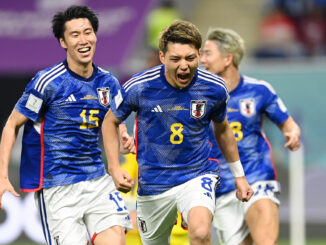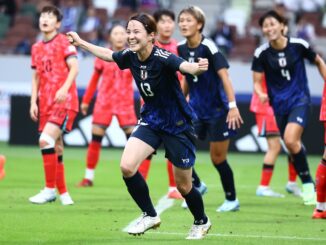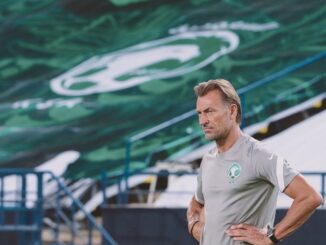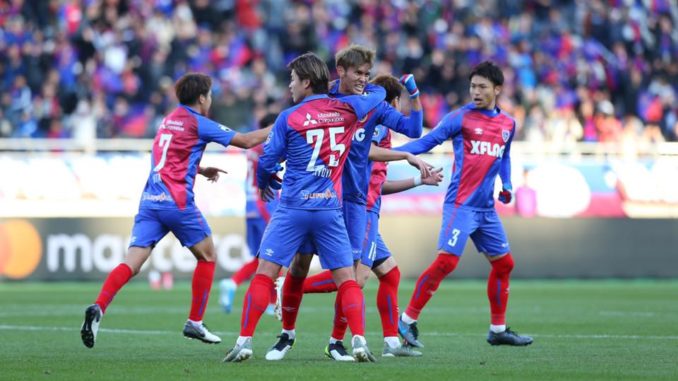
It only marked the halfway point in the season, but when FC Tokyo came from behind to beat Yokohama F.Marinos 4-2 on 29 June it looked like a statement was being made.
Despite conceding first in the clash billed as an early signifier in the 2019 title race, Tokyo maintained their composure superbly and were ruthless with their chances to ensure they remained out and away at the summit after 17 rounds of games.
The victory also extended their lead over Marinos to six points, leaving manager Kenta Hasegawa in understandably high spirits in the post-match press conference.
“Today we went with a selection that would keep pushing for goals even if we conceded,” the former Japan international said.
“It couldn’t be helped that we conceded twice. We were holding the farewell ceremony for Take (Takefusa Kubo) after the game, so we knew a lot of fans would be at the stadium. It wasn’t a case of playing the game too tactically, but instead playing to our strengths and if we lost, so be it.
“Our weapons outdid Marinos’, and while we weren’t able to avoid conceding I think what is more impressive is that we scored four times.”
Five months down the line, however, they will need to do at least that again if they want to be lifting the J1 shield for the first time.
Only a victory by four clear goals will see them crowned 2019 J.League champions, with Marinos having executed a sensational nine-point swing over the second half of the season and now leading the table by three points and superior goal difference.
It’s not quite mission impossible, but the odds are certainly stacked against a club which has made underachievement something of a habit since winning promotion to J1.
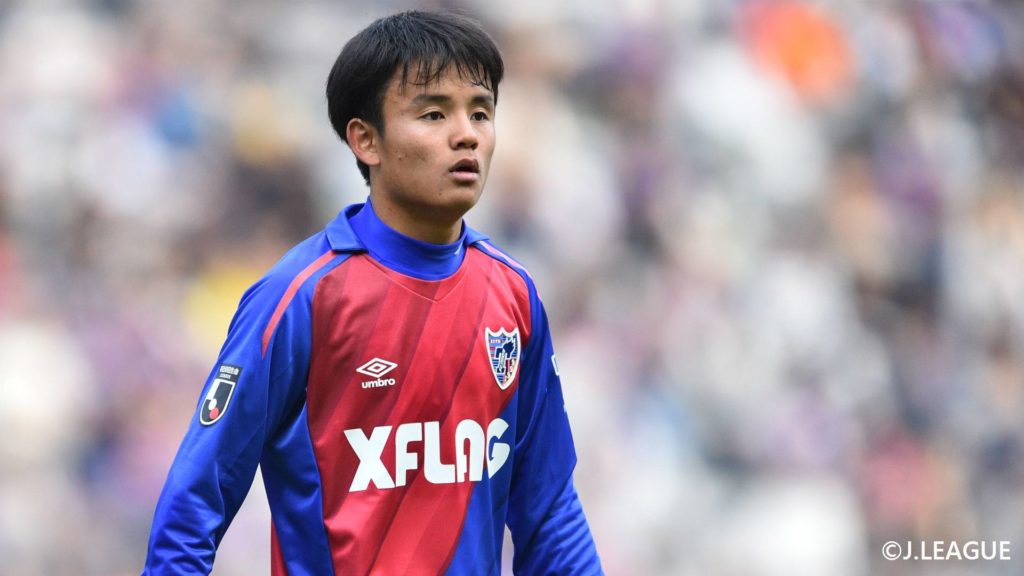
Aside from a single season in the second tier in 2011 the capital city side has spent the last 20 years in the top flight, yet the highest they have finished in that time is fourth – which they managed in 2003 and 2015. In terms of trophies, the Ajinomoto Stadium cabinet houses just two League Cups (2004 and 2009), an Emperor’s Cup (2011), and the J2 title (also 2011).
Last year it looked for a spell as though the curse may be lifted, but despite sitting second after 21 rounds of the 34-game season they faded terribly when results really mattered, ultimately finishing sixth after winning just four of their last 17 matches.
The team shook that disappointment off impressively and burst out of the traps in 2019, claiming 30 points from a 12-game unbeaten run to start the season, and between rounds eight and 28 they were sitting pretty atop the rankings.
There have, however, been blips.
The team lost three in four between the end of May and end of June, claimed just one win in six between 17 August and 5 October, and is currently on a run of only four wins in their last 11 – including draws in each of their last two, which has handed the initiative to a relentless Marinos.
The loss of their key – perhaps only – player capable of making something happen from nothing undoubtedly served a huge blow to the side, with the aforementioned Kubo upping sticks the moment he turned 18 and signing for Real Madrid.
In this respect, there is a clear parallel to be drawn with Tokyo’s most successful campaign in recent memory.
Yoshinori Muto was the outstanding player in the J.League at the start of 2015, inspiring Tokyo to a second place finish in the first stage of the season before leaving for Mainz. Deprived of their star player the club unsurprisingly tailed off, ultimately finishing sixth in the second stage and fourth overall.
There was a similar effect this year too, with Tokyo losing their first two games without Kubo after his transfer to Madrid was confirmed, and missing his sparkle as they have seen themselves reeled in by Marinos.
There has also been a glaring lack of goals, demonstrated most clearly by the fact that Kubo remains the team’s third highest scorer with four.
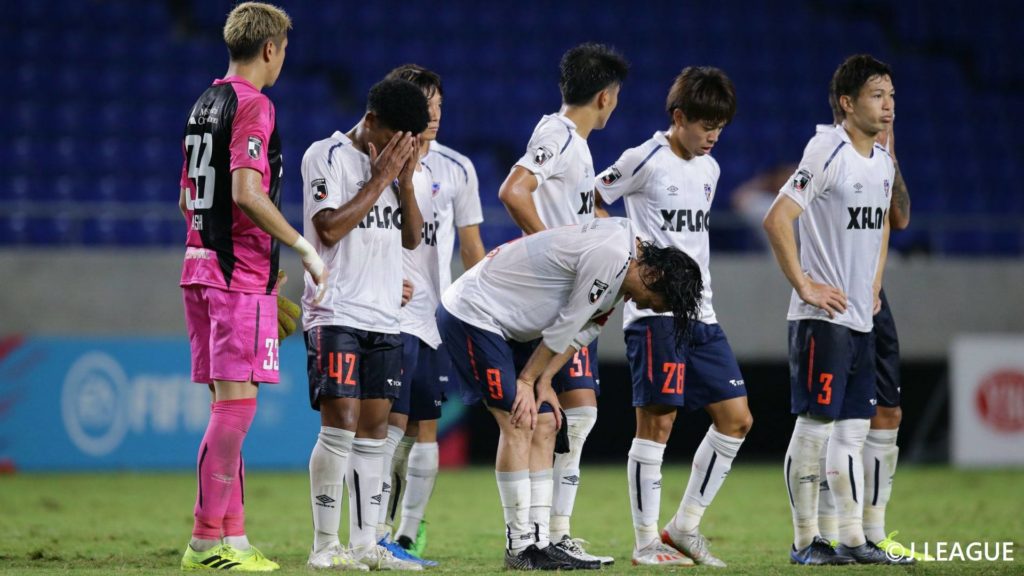
Diego Oliveira is their most accurate marksman on 14 and strike partner Kensuke Nagai is next on the list with nine, but the bulk of that pair’s efforts came earlier in the season, with them having managed just three between them in the last 11 games.
Despite that, Tokyo have just about managed to keep themselves in the title picture and head into the final game of the season knowing glory will be theirs if they can replicate their scoring feats against Marinos from June.
This is down in no small part to the steadying influence played by Hasegawa. The 54-year-old guided Gamba Osaka to a domestic treble in 2014 and brings a steel and consistency to the way his teams play, if not always flair and panache.
This Tokyo side is a team of six-out-of-ten players giving six-out-of-ten every week. It’s the archetypal unit worth more than the sum of its parts, with one of them popping up with something special from time to time.
Masato Morishige did just that a couple of weeks ago, the centre-back steering home an audacious injury time effort on the bounce from 30 yards to snatch a 1-1 draw against Shonan Bellmare – a strike that has just about kept Tokyo in the fight ahead of Saturday’s do-or-die clash.
In recent years Sanfrecce Hiroshima and Kawasaki Frontale have been able to shake off their also-ran tags and followed maiden titles with subsequent success, and if Tokyo can find a route to glory this weekend they could also discover a new lease of life with the monkey of that first J.League title off their back.
If they can’t, then their most successful season to date will be seen as yet another opportunity wasted.
Photos: J.League


